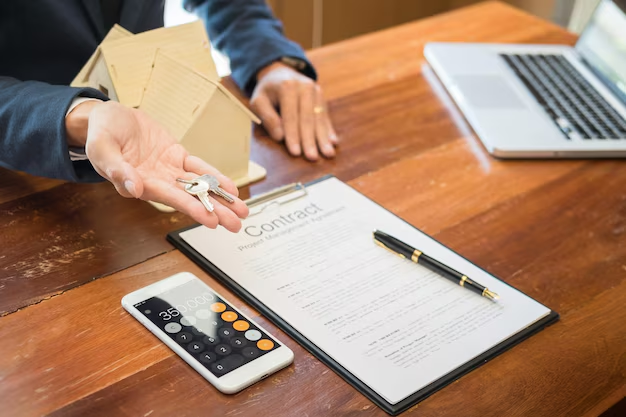Protecting Your Security Deposit: A Complete Guide for Tenants
Moving into a new apartment is an exciting adventure. It promises new surroundings, possibly new amenities, and sometimes, a chance to start afresh. However, one aspect that often clouds this enthusiasm is the security deposit—an amount meant to safeguard the landlord against potential damages or unpaid rent. As a tenant, it’s vital to understand how to protect your security deposit, ensuring it's returned in full when you decide to move out. This guide offers comprehensive insights for tenants seeking to safeguard their deposit throughout their lease.
Why Is a Security Deposit Required?
Understanding the purpose of a security deposit helps you navigate the rental landscape more confidently. A security deposit acts as a safety net for landlords. It covers:
- Potential property damage beyond normal wear and tear
- Unpaid rent at the end of a lease
- Possible cleaning costs to restore the property post-tenancy
This upfront payment often equals one to two months of rent and is usually refundable, provided the property remains in optimal condition.
Before You Move In: Setting the Right Foundation
Know Your Lease Agreement
The lease agreement is your starting point. It should explicitly outline:
- Deposit amount and conditions of refund
- Deductions permissible for damages or cleaning
- Required notice period for lease termination
Always read the lease thoroughly before signing, and don't hesitate to ask questions about clauses that seem unclear.
Conduct a Pre-Move-In Inspection
A pre-move-in inspection is essential for recording existing issues with the property. Here's how to approach it:
- Walk through the property noting any existing damages—scratches, dents, or appliance issues.
- Document with photos or video, ensuring timestamps are visible.
- Report findings to your landlord and have both parties sign off on the documentation.
Understand Your Rights
Familiarize yourself with tenant rights and local landlord-tenant laws. These regulations vary by region but typically cover:
- Timing for security deposit return
- Conditions for lawful deductions
- Procedures for dispute resolution
During Your Tenancy: Maintaining the Property
Regular Maintenance and Communication
Maintaining open communication with your landlord can prevent small issues from escalating. Be proactive:
- Report repair needs promptly (leaky faucets, broken appliances)
- Use written communication for all repair requests, keeping records
- Understand responsibilities—what you handle vs. what your landlord manages
Maintain Cleanliness
Routine cleaning helps you avoid cleaning fee deductions later:
- Regularly vacuum, dust, and mop
- Deep clean seasonally
- Proper waste disposal minimizes clutter and potential infestations
Preparing to Move Out: Ensuring a Full Refund
Notice of Intent to Vacate
Notify your landlord within the time frame specified in the lease. A formal letter stating your intention to vacate helps avoid last-minute complications.
Conduct a Pre-Move-Out Inspection
Similar to the pre-move-in inspection, organize a pre-move-out walkthrough:
- Use your initial inspection checklist as a reference
- Fix minor damages (nail holes, scuff marks)
- Replace burned-out light bulbs or broken blinds if stipulated in the lease
Understand Cleaning Standards
Determine if any cleaning services are required:
- You may need to hire professional cleaners or follow specific cleaning protocols
- Provide receipts if you opt for professional cleaning to preempt deductions
Handling Disputes: When Things Don't Go as Planned
Security Deposit Return Timeline
Familiarize yourself with return timelines:
- Many regions require deposit returns within 30 days of lease termination
- If deductions occur, landlords should provide an itemized list of expenses
Addressing Unjust Deductions
Should disputes arise over deductions:
- Review your lease and inspection documentation
- Draft a formal dispute letter citing evidence
- Consider mediation or small claims court if resolution isn’t reached amicably
Practical Tips for Tenants
Avoiding Common Mistakes
- Neglecting documentation: Always document everything before and after your tenancy.
- Ignoring minor damages: Address small issues promptly to avoid costly repairs later.
- Failing to communicate: Open dialogue with your landlord prevents misunderstandings regarding maintenance duties.
Moving Out Checklist
- 📸 Document the property as you move out
- 🖋 Secure receipts for any professional cleaning or repairs
- 💼 Organize all documents related to your tenancy—a paper trail is your best defense
Here's a quick summary of the essential steps:
| Steps for Securing Your Security Deposit |
|---|
| 1. Read and Understand Rent Agreement |
| 2. Pre-Move-In Inspection |
| 3. Maintain the Property Regularly |
| 4. Communicate with Landlord Continuously |
| 5. Notice of Intent to Vacate (Timely) |
| 6. Pre-Move-Out Inspection & Cleaning |
| 7. Handle Disputes Professionally |
Successfully managing your security deposit is about being detail-oriented and communicative. Through proactive maintenance and thorough documentation, you lay the foundation for a hassle-free move-out process and secure the return of your hard-earned money. Whether you’re a seasoned renter or new to leasing, these strategies put you in a strong position to protect your investment and enjoy your living space with peace of mind.

Related Topics
- A Comprehensive Guide On Filing For Child Custody
- A Comprehensive Guide To Bail And Bond Processes
- A Comprehensive Guide To Dealing With An Uninhabitable Apartment
- A Comprehensive Guide To Navigating Your VA Benefits Appeal
- Am I Eligible For Unemployment Benefits?
- Breaking Down Your Rights To Overtime Pay
- Can a Landlord Enter My Rental Property Without Notice?
- Can I Switch From a Paid Lawyer To a Pro Bono Lawyer If I Can No Longer Afford Representation?
- Can Landlord Discriminate Based On Race, Gender, Or Religion? An In-Depth Examination
- Crafting Your Last Testament: A Comprehensive Guide To Writing a Will Without a Lawyer
